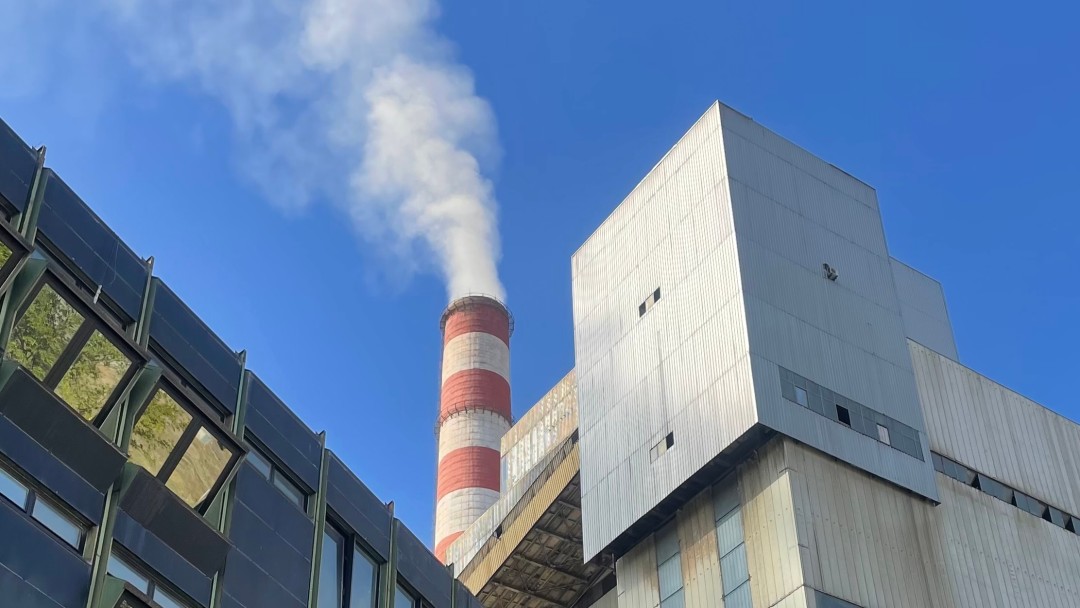
As of: 02/2024
Kosovo’s electricity supply is largely dependent on two coal-fired power plants, which are also outdated. They are responsible for a considerable proportion of the country’s carbon dioxide emissions. On behalf of the German Federal Government, KfW is supporting the construction of a large photovoltaic system with an installed capacity of up to 100 MW to promote decarbonisation. It will contribute to significantly reducing greenhouse gas emissions and pave the way for further investment. The project therefore sets an important milestone for more green electricity in Kosovo’s energy sector.
Kosovo’s energy sector is the main driver of the country’s greenhouse gas emissions. It is based on the use of two coal-fired power plants. They are in poor condition, technologically outdated and inadequately maintained. There are regular blackouts, especially in winter when demand increases and they are overloaded.
However, the two power plants, Kosovo A and Kosovo B, currently cover 94 percent of national electricity demand. At the same time, they create high levels of air pollution. Primarily, they affect the air quality in the capital city of Pristina and the surrounding communities.
Kosovo must also import electricity from abroad to cover overall demand. As a result, the country is dependent on global market prices, which have risen sharply in recent years. This places a strain on the national budget.
The country offers favourable climatic and geographical conditions for the use of renewable energies. However, in 2022 these energy supplies only met 6 percent of national energy demand, with solar energy accounting for only 0.2 percent. The proportion of renewable energies must be significantly increased if the country is to achieve its goal of decarbonisation by 2050. This is set out in the National Energy Strategy 2022-2031. Furthermore, Kosovo has signed up to this objective in the Sofia Declaration on the Green Agenda for the Western Balkans.
To fulfil the National Strategy, it is envisaged that at least 1,400 MW of energy will be generated from wind and solar power by 2031.

A photovoltaic system is being built on the areas where ash from the two coal-fired power plants at Kosovo A was previously deposited. It will have an installed capacity of up to 100 MW and produce 152 GWh of electricity annually. The plant will be erected on the partly rehabilitated ash heaps that are no longer in use. Based on recommendations from a feasibility study, the plant will be built on an area of 150 hectares. This is equivalent to more than a hundred football pitches.
The photovoltaic system will be connected to the Kosovo grid. The executing agency for the plant is qualified in the maintenance and operation of the plant as well as forecasts for solar power generation.
The cost is EUR 104 million, which will be jointly funded by several donors, including the EU with grants from the Western Balkan Investment Framework (WBIF) and the European Development Bank (EIB). KfW is contributing EUR 29 million and will assume the leading role in financing the project.
The solar power plant will help save more than 130,000 tonnes of carbon dioxide emissions annually. In total, 152 GWh of green electricity will be produced annually, benefiting Kosovo households, public institutions and companies. Power outages are expected to be less frequent in the future. Dependence on expensive electricity imports will be reduced. The local supplier is building up the capacities and skills to operate photovoltaic systems independently.
The project is an important milestone for the transition of the energy supply in the Western Balkan countries towards a sustainable electricity supply. This is the first large-scale photovoltaic system in Kosovo that can increase the installed capacity of photovoltaic energy from the current 10.1 MW (2022) to up to 110.1 MW.
The project contributes to the achievement of these following United Nations Sustainable Development Goals:
KfW Office Pristina
Share page
To share the content of this page with your network, click on one of the icons below.
Note on data protection: When you share content, your personal data is transferred to the selected network.
Data protection
Alternatively, you can also copy the short link: https://www.kfw-entwicklungsbank.de/s/enzBx42f
Copy link Link copied